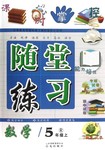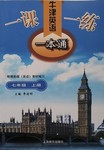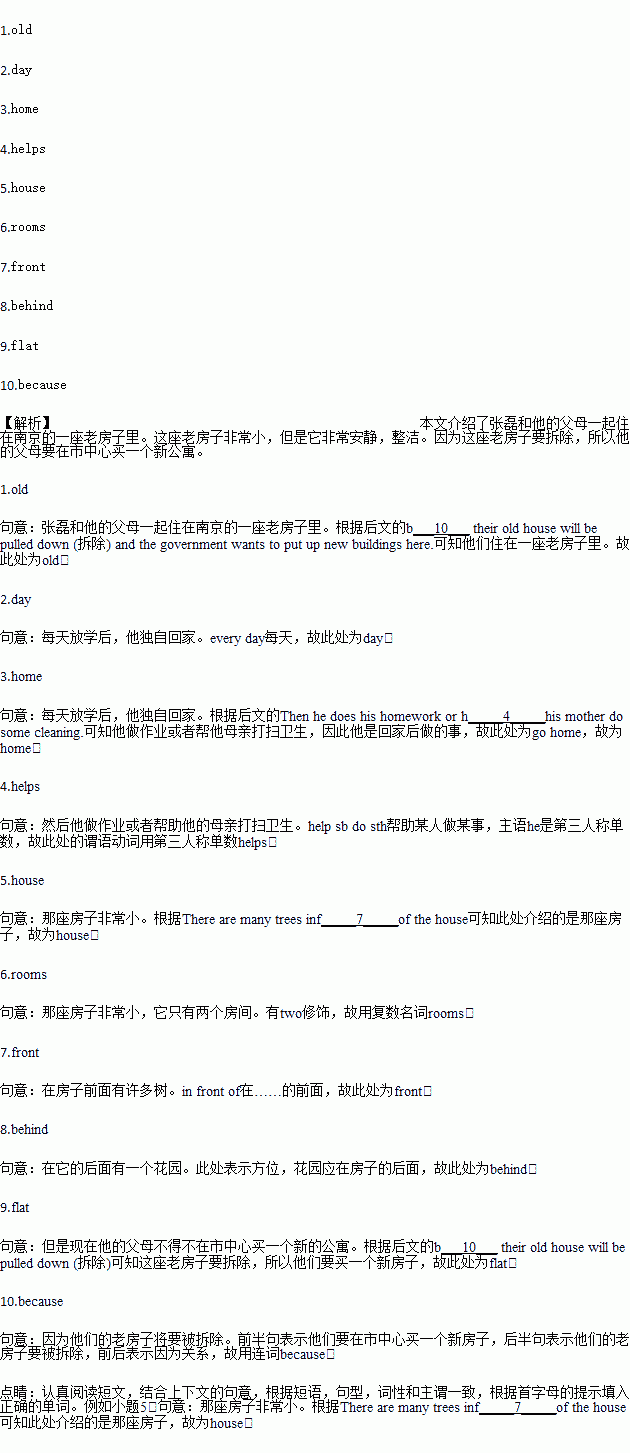题目内容
Zhang Lei with his parents lives in an o1.house in Nanjing. He is a student of Sunshine Middle School. Every d2.after school, he goes h3.on his own. Then he does his homework or h4.his mother do some cleaning. The h5.is very small, and it has only two r6.. But it is quite clean and quiet. There are many trees in
f7.of the house and there is a small garden b8.it. His parents grow many
flowers and vegetables in the garden.
But now his parents have to buy a new f9.in the centre of the city b10. their old house will be pulled down (拆除) and the government wants to put up new buildings here. Zhang Lei isn’t happy at all. He misses his old house very much.
练习册系列答案
 开心蛙状元作业系列答案
开心蛙状元作业系列答案 课时掌控随堂练习系列答案
课时掌控随堂练习系列答案 一课一练一本通系列答案
一课一练一本通系列答案 浙江之星学业水平测试系列答案
浙江之星学业水平测试系列答案
相关题目

